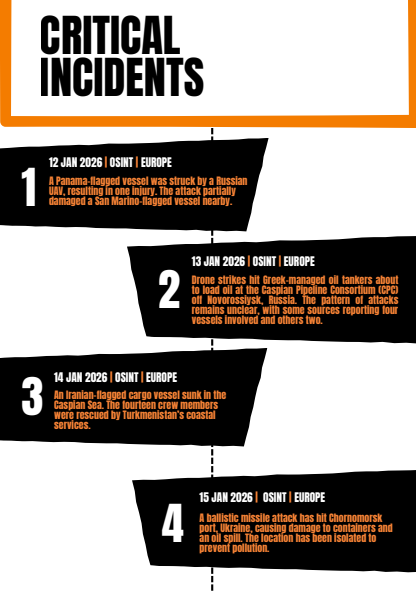France Tightens Net on Russia’s Shadow Fleet
- Palaemon Maritime
- Oct 8, 2025
- 2 min read
In a decisive maritime enforcement operation, the French Navy has intercepted and boarded an oil tanker suspected of belonging to Russia’s “shadow fleet."
French Navy Boards Suspicious Oil Tanker

The move, carried out off the coast of Saint-Nazaire on September 28, highlights growing European determination to confront sanction evasion and hybrid threats in shared maritime zones.
French media reported that two senior crew members from the Russian-linked tanker Boracay were detained off Saint-Nazaire following the boarding operation. French President Emmanuel Macron said the vessel was held due to “serious offences” committed by the crew.
LIKE THIS POST?
GET WEEKLY MARITIME SECURITY REPORTS STRAIGHT TO YOUR INBOX
Ship's Profile
The Boracay, a 2007-built crude oil tanker currently sailing under the flag of Benin, was blacklisted by the European Union in February under its former name Kiwala for circumventing sanctions on Russian oil exports. Earlier this year, on April 11, the same vessel—then operating as Kiwala—was detained in the Gulf of Finland by the Estonian Navy for sailing under a false flag. At the time, it was flying the flag of Djibouti, which had already deregistered the tanker in January due to alleged illegal activity.

AIS tracking data shows that the Boracay remained off the Danish coast between September 22 and 25, overlapping with a series of drone sightings that forced temporary airport closures and led to a nationwide suspension of civilian drone flights.
President Macron confirmed that the ship is under investigation for multiple regulatory violations but stopped short of linking it directly to the drone incursions.
A Legal Blow to Shadow Fleet

French prosecutors said the two detained officers — the captain and first mate, both Chinese nationals — face charges of refusing to comply with naval orders and failing to establish the vessel’s nationality.
President Macron described the Boracay as emblematic of Russia’s broader “shadow fleet”, an estimated 600 to 1,000 tankers used to move sanctioned oil through opaque ownership structures. “You kill the business model by detaining these vessels and forcing them to reorganize,” he said, noting that as much as 40% of Russia’s war financing flows through such operations.
Lessons for Maritime Operators
For shipmasters, compliance officers, and port authorities, the Boracay case underscores the rising complexity of maritime enforcement. Frequent reflagging, falsified documentation, and opaque chartering arrangements are increasingly being used to mask sanctionable trade.
The episode also serves as a reminder of the legal reach of coastal states under international law and the heightened scrutiny now applied to vessels operating in European waters. As hybrid threats evolve, maintaining transparent registration and verified AIS tracking remains essential to safeguard both commercial integrity and maritime security.
Don't let your vessels become the next target in these compromised waters. While traditional security measures failed to detect this decade-long operation, Palaemon's anti-piracy barriers are used by international majors, major container shipping lines, reefers, tankers and many others. You can join them. Protect your cargo, crew, and reputation with proven solutions.
Available to rent for short or long-term transits.
Contact us today.












Comments